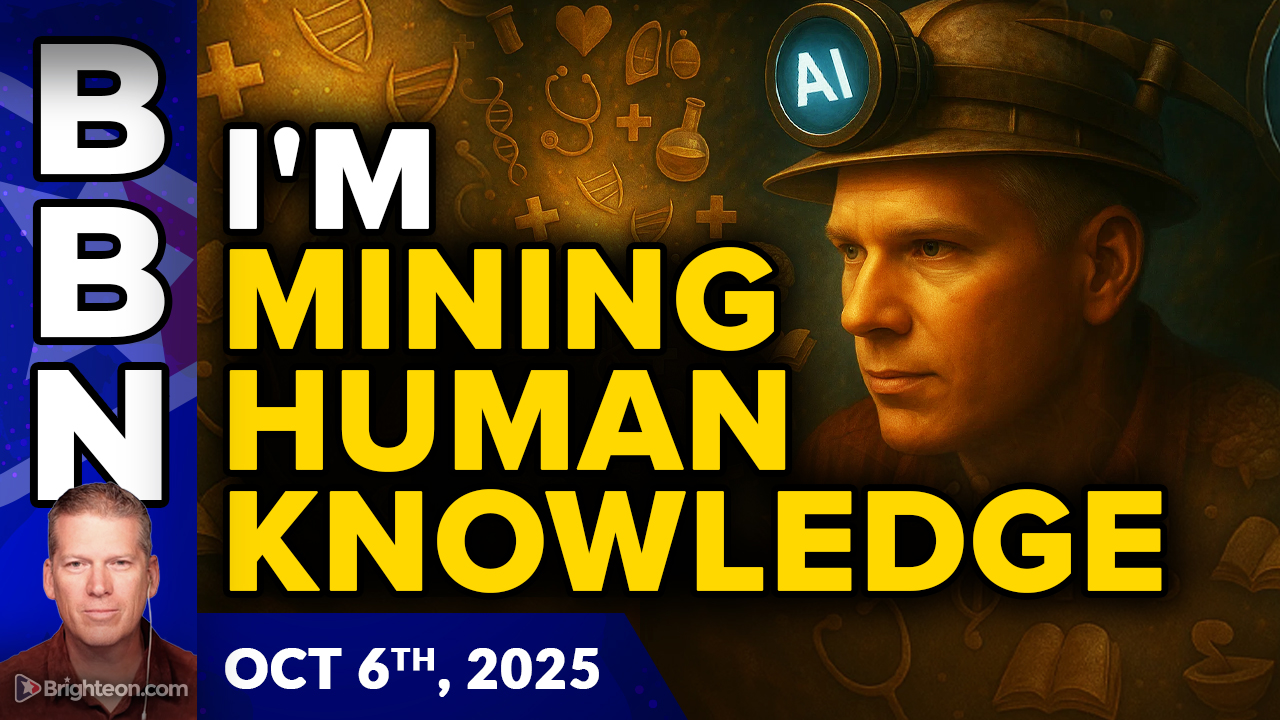Junk science SUGAR FOOD STUFF wrecks the brain’s emotional circuits, fueling depression, sleep disturbance, social withdrawal
10/07/2025 / By S.D. Wells

Depression, one of the world’s most pervasive mental health disorders, affects more than 280 million people globally as of 2025. Characterized by lethargy, disturbed sleep, and social withdrawal, depression significantly disrupts daily life and increases suicide risk.
While current antidepressants mainly target neurotransmitters such as serotonin, they only help about half of patients and often produce side effects. Seeking new biological mechanisms, researchers at the Institute for Basic Science (IBS) have discovered a novel molecular pathway linking tiny sugar molecules in the brain to depressive behavior — a breakthrough that could redefine how depression is diagnosed and treated.
- New Molecular Link to Depression: Researchers at the Institute for Basic Science discovered that abnormal sugar modifications (O-glycans) in brain proteins, especially in the prefrontal cortex, directly trigger depressive behaviors by disrupting emotional circuits.
- Chronic Stress and Glycosylation Disruption: Chronic stress was found to reduce sialylation—the stabilizing sugar modification of proteins—by decreasing levels of the enzyme St3gal1, which in turn destabilizes key synaptic proteins like neurexin 2 (NRXN2) and impairs inhibitory neuron function.
- Experimental Proof in Mice: Suppressing St3gal1 in normal mice caused depressive-like symptoms even without stress, while increasing it in stressed mice reversed these behaviors, confirming its direct role in mood regulation.
- Therapeutic and Diagnostic Potential: The study, published in Science Advances, highlights glycosylation as a new molecular pathway for diagnosing and treating depression—offering promising targets beyond traditional neurotransmitter-based antidepressants.
Tiny Sugars in the Brain Disrupt Emotional Circuits, Fueling Depression
The study, led by Dr. C. Justin Lee and Dr. Boyoung Lee, and published in Science Advances, focuses on a biochemical process called glycosylation, in which small sugar chains (glycans) attach to proteins and modify their functions. Specifically, the researchers examined O-glycosylation, a form of glycosylation known to regulate cell communication and neural balance. Although glycosylation has been implicated in diseases like cancer and neurodegeneration, its connection to psychiatric disorders had remained largely unexplored — until now.
Using high-resolution mass spectrometry, the team analyzed O-glycan profiles across nine different brain regions in both healthy and chronically stressed mice. Each brain region exhibited distinct glycosylation patterns, but chronic stress caused striking changes in certain areas — particularly the prefrontal cortex, a region crucial for emotion regulation, motivation, and decision-making. In stressed mice, the researchers found a significant reduction in sialylation, the process of adding sialic acid to sugar chains that helps stabilize proteins. This reduction was accompanied by decreased expression of St3gal1, an enzyme responsible for sialylation.
To determine the functional impact of this change, the team altered St3gal1 levels in the prefrontal cortex. Suppressing St3gal1 in normal mice caused them to develop depression-like symptoms, including loss of motivation and increased anxiety, even without exposure to stress. Conversely, restoring or increasing St3gal1 levels in stressed mice alleviated these symptoms. These results provided strong evidence that reduced St3gal1 activity and disrupted glycosylation directly contribute to the onset and severity of depression.
Further analysis revealed that reduced St3gal1 expression destabilized the sugar structures of key synaptic proteins, including neurexin 2 (NRXN2) — a molecule vital for maintaining synaptic connections. This destabilization impaired the function of inhibitory neurons, which normally keep emotional circuits balanced. As a result, neural communication within the prefrontal cortex became disordered, collapsing the brain’s ability to regulate emotions and leading to depressive behavior.
“This study demonstrates that abnormal glycosylation in the brain is directly connected to the onset of depression,” said Research Fellow Boyoung Lee. “It provides an important foothold for identifying new diagnostic markers and therapeutic targets beyond neurotransmitters.”
Director C. Justin Lee emphasized that the discovery could extend beyond depression to other mental health conditions. “Depression imposes a major social burden, yet current treatments remain limited,” he noted. “Our findings may pave the way for new therapeutic strategies targeting glycosylation pathways in disorders such as PTSD and schizophrenia.”
By uncovering how subtle molecular changes in brain sugar chains disrupt emotional circuitry, this research opens a new frontier in understanding — and ultimately treating — depression at its biochemical roots.
Tune your food news frequency to FoodSupply.news and get updates on more junk science food stuff that’s loaded with HFCS that corporate America loads the grocery store shelves with to drive up chronic diseases and disorders so Big Pharma can take your money.
Sources for this article include:
Submit a correction >>
Tagged Under:
Anxiety, beat depression, brain circuits, brain function, cancer, depression, frakenfood, fueling depression, HFCS, mental, mind body science, stop eating poison, stress, sugar, sweetener
This article may contain statements that reflect the opinion of the author
RECENT NEWS & ARTICLES
COPYRIGHT © 2017 SCIENTIFIC NEWS



















